Dental records module 3 test
1/63
Earn XP
Description and Tags
patient record and charting
Name | Mastery | Learn | Test | Matching | Spaced | Call with Kai |
|---|
No analytics yet
Send a link to your students to track their progress
64 Terms
Dental record
Full complete history of an individuals dental care, it is a permanent record that contains personal and legal documentation of the patient
Types of dental records
Paper and Electronic
Components of the dental record
Information gathering forms. (patient registration form, medical-dental health history form, medical alert information, consent forms.)
Medical Alert
Tagged note of Health conditions, allergic reactions, medications, that could interfere with patient during dental treatment
Medical-Dental health history
Must be updated at every appointment, information such as diagnosis of medical conditions/new medications.
Forms needed for diagnostic information
Physical examination form, radiographic examination form, clinical examination form
clinical examination form
Provides the dental team with past, present, and future examination, analysis, and charting needs of the patient
Treatment plan
record the plan of care on the treatment plan form, sequenced to address all problems that were found during examination and diagnosis portions of patient visits.
Factor that may change the treatment plan
Financial arrangements
informed consent form
Related to a specific treatment or procedure, gives patient with expected outcomes of treatment and describes any possible complications that may occur. *commonly used for invasive or extensive treatment*
progress notes
where treatment is recorded, ALWAYS INCLUDES: date, tooth number, completed treatment and communication with patient
HIPAA
Requires that all dental practices today have a written privacy policy (United States)
PIPEDA
Personal information protection act (Canada)
PHIA
Personal health information act (Nova Scotia)
Quality assurance
The primary source of information used by the dental team to determine the overall quality of care the patient has received.
Risk management
proper documentation helps avoid litigation
Anatomical chart
Shows full detailed dentition (includes previous work and work that needs to be done)
Geometric chart
Shows full, less detailed dentition in small circles (includes previous work and work that needs to be done)

S
tooth has a sealant

O
Restoration (filling) on the occlusal

MOD
restoration (filling) on the mesial occlusal distal

O
Restoration required on the occlusal

O
Recurrent decay

Class IV restoration

X
tooth is missing

X
tooth needs to be extracted

Tooth is impacted or not erupted

tooth is rotated, *curve arrow in direction of rotation!* (mesial or distal)

tooth has drifted, *straight arrow in direction of drifting* (mesial or distal)

Tooth is missing and the space is closed *arrows must touch*

tooth is fractured *jagged line drawn where fracture is*

Tooth has a veneer, *C or P above tooth to indicate material*
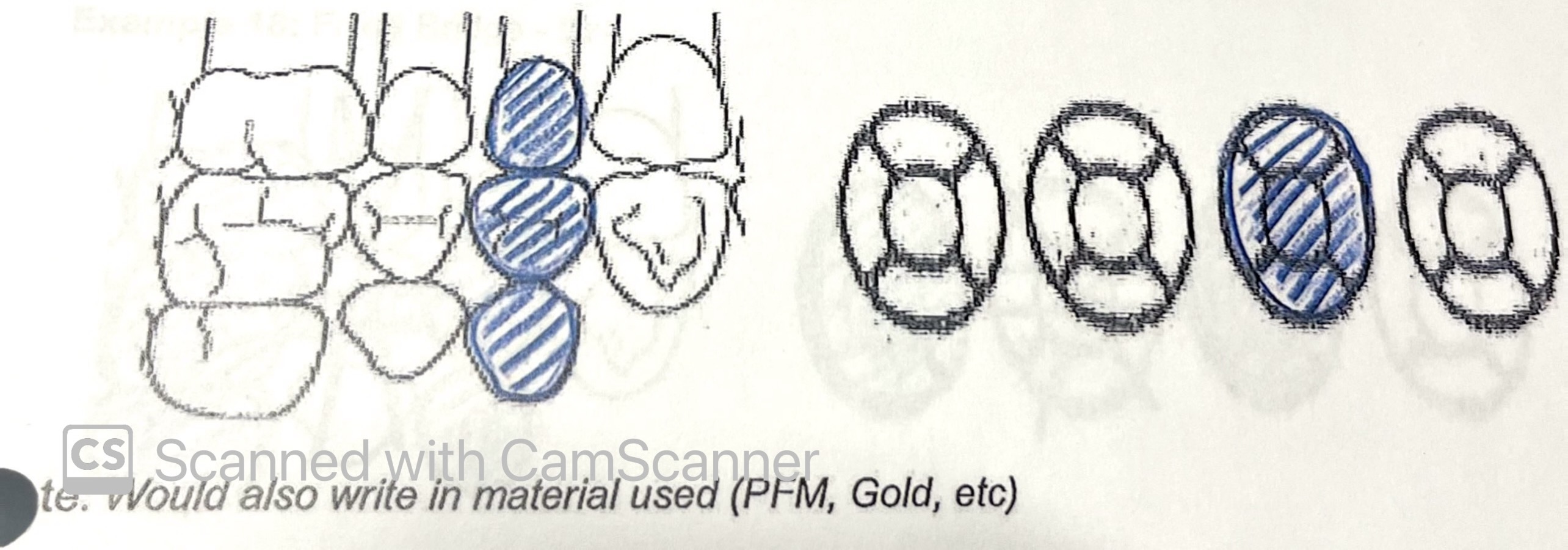
Cr
Full crown *would also write material used (PFM, gold, etc)*

RCT
Root canal therapy
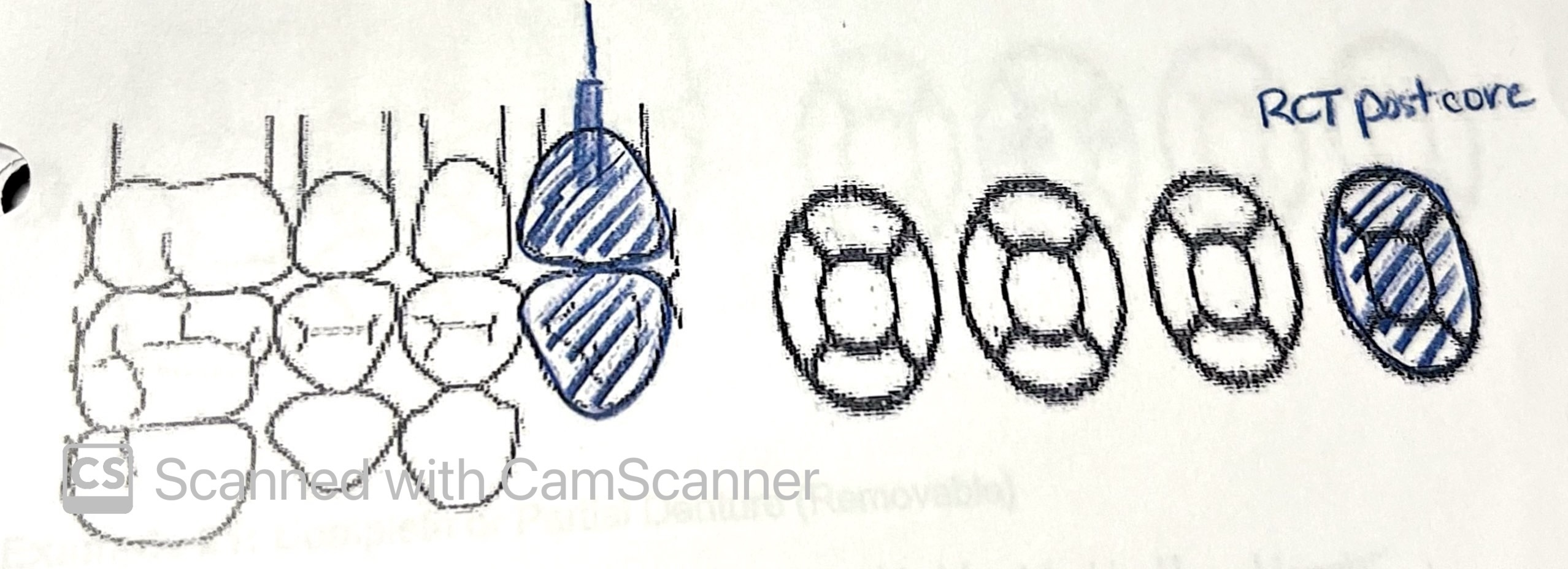
Tooth has a RCT, post/core/crown

Br
Fixed bridge

Diastema

Two restorations separated on the same tooth
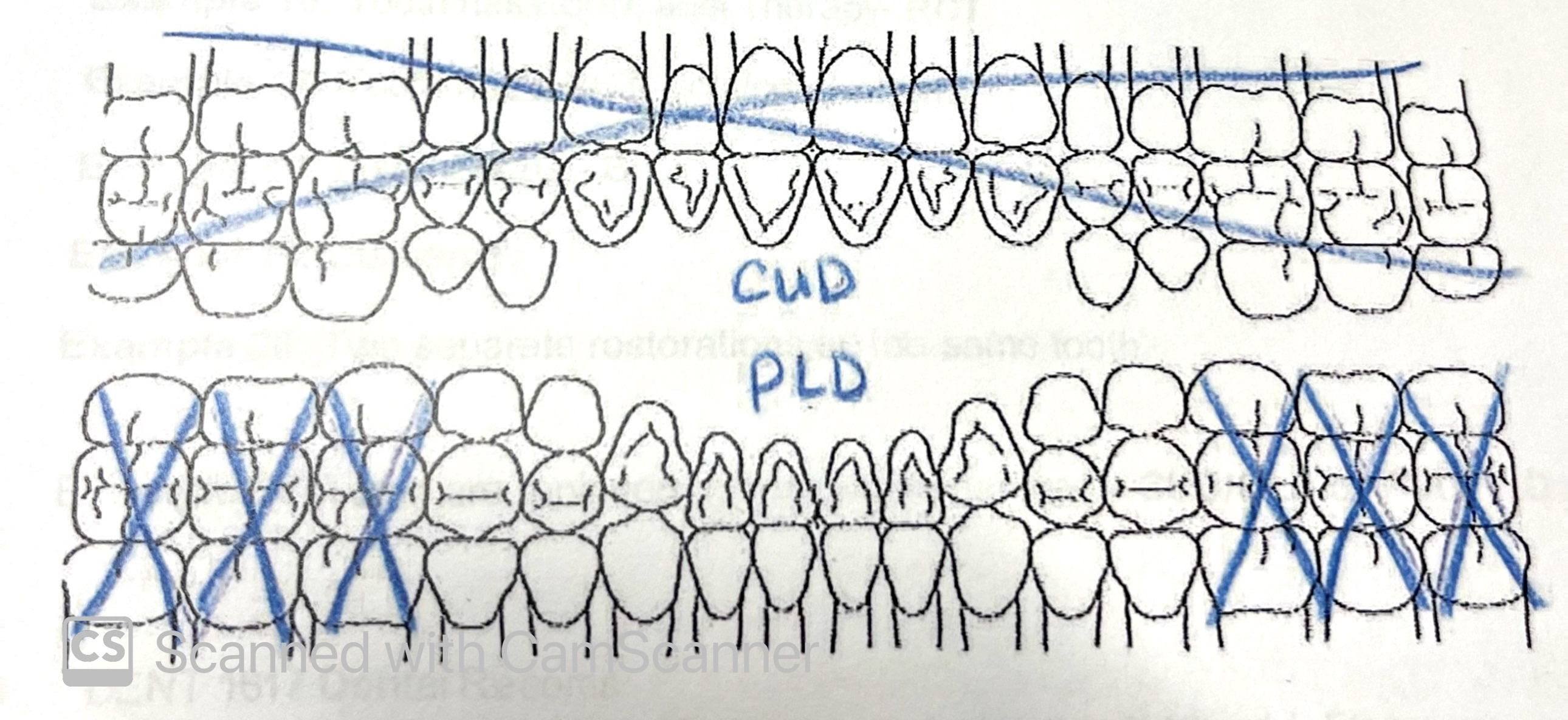
Complete or partial denture (removable)
Blacks classifications of cavities
Classifies the location and description of the carious lesion using Roman Numerals
Class I
Decay in pits and fissures of molars and premolars and/or in lingual pit of max incisor
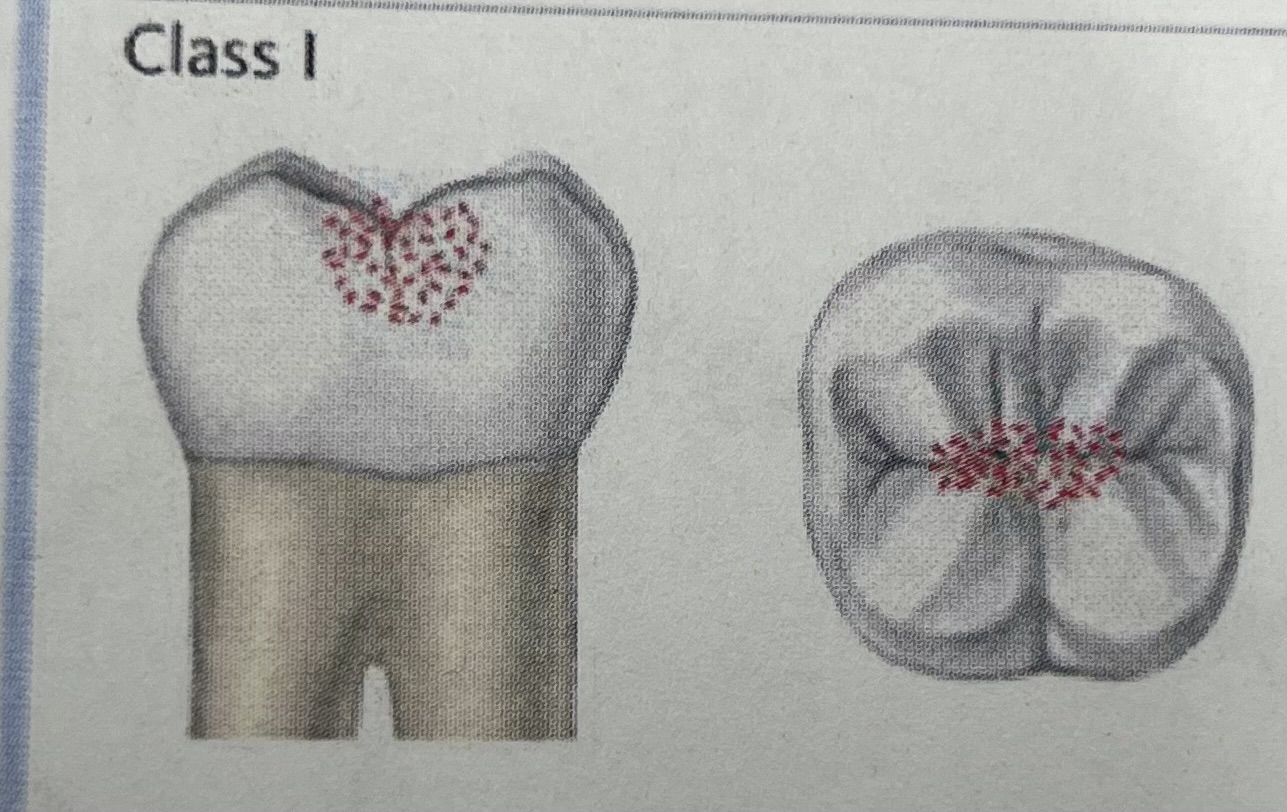
Class II
Decay on Proximal mesial or distal surfaces of PREMOLARS and MOLARS
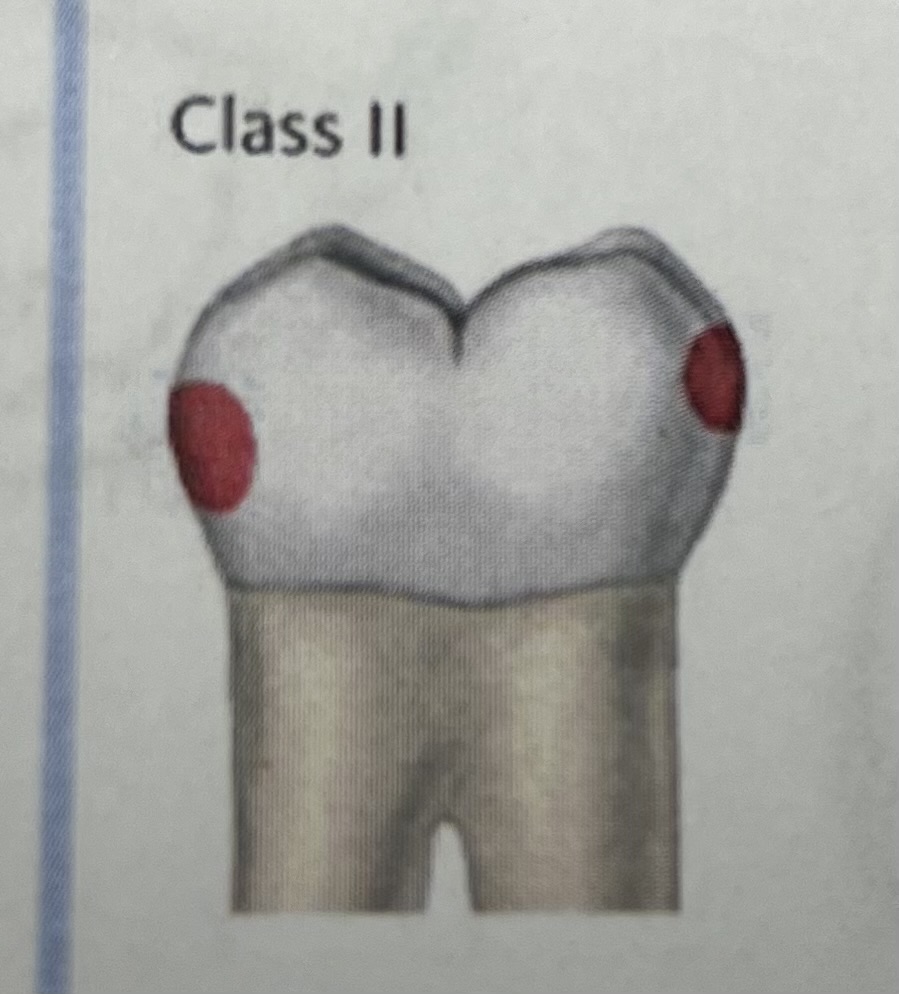
Class III
Decay is on proximal mesial or distal surfaces of anterior teeth
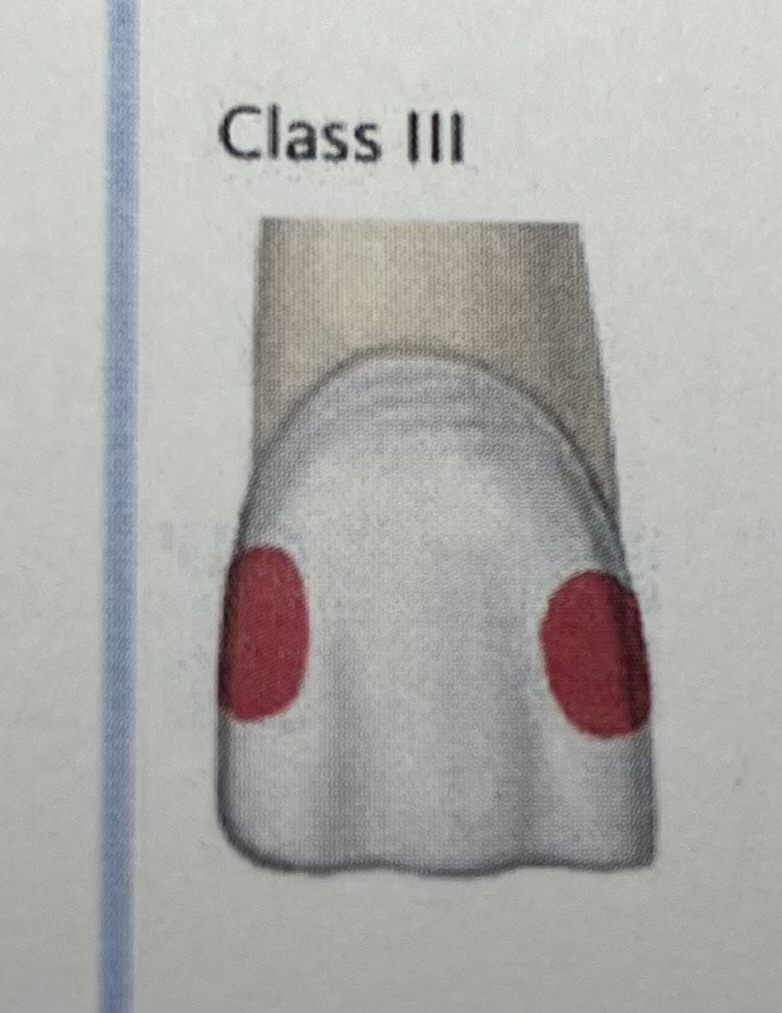
Class IV
Chipped tooth restoration, anterior teeth
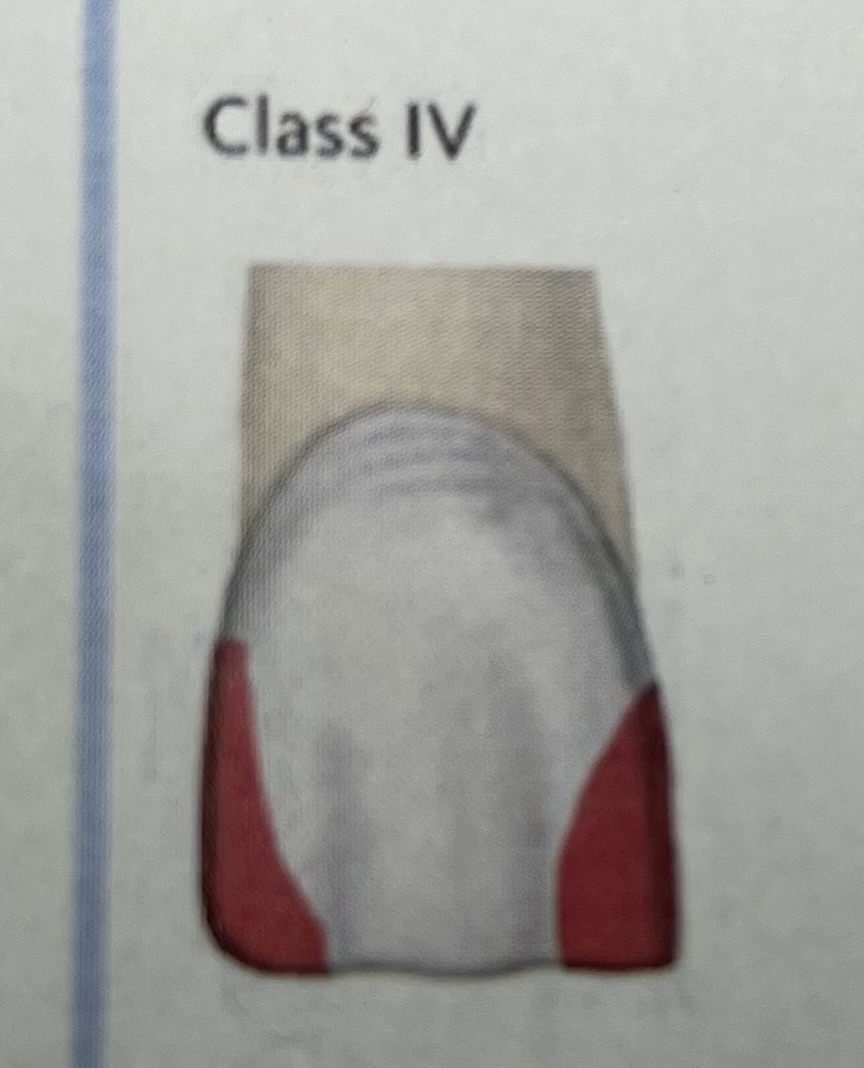
Class V
Decay towards gingiva of ANY tooth *think V shape*
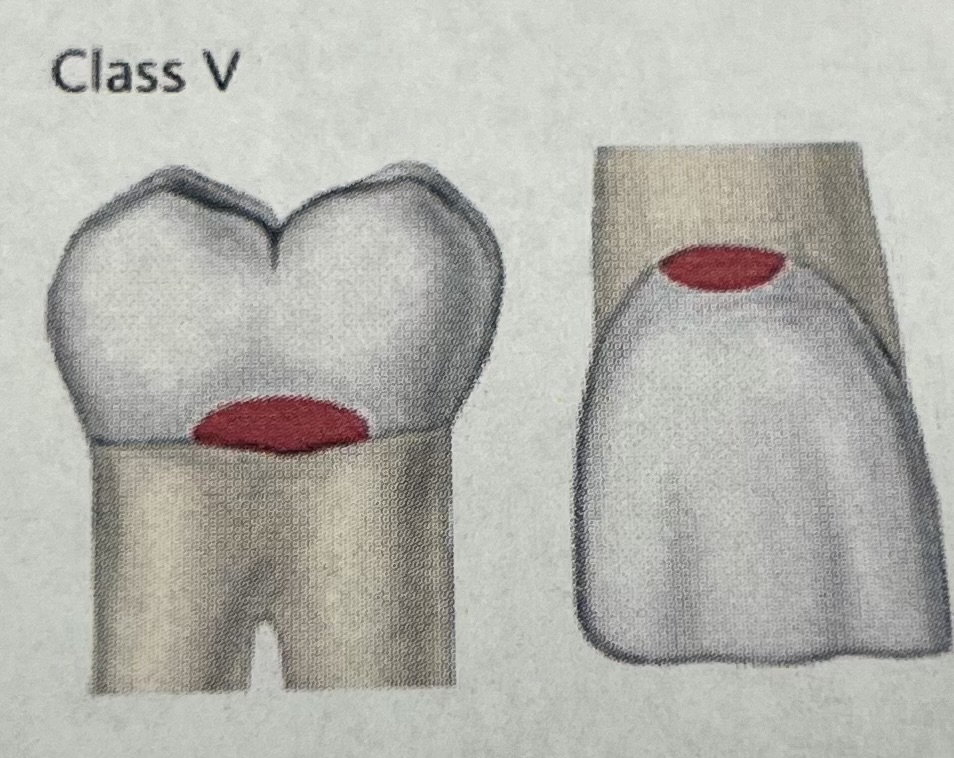
Class VI
Decay on incisal edges of anterior teeth, often from grinding *newest class*
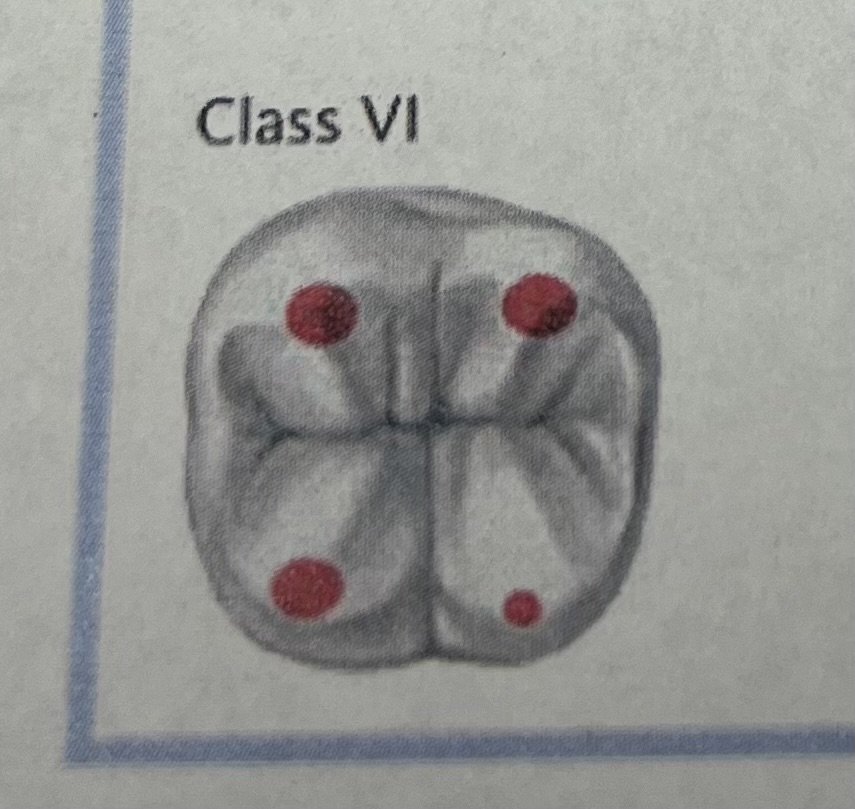
How long must we keep the patient record?
10 years
Who signs the dental assistants entries in patient record?
Dentist
Restoration
replaces tooth structure, often known as FILLINGS
Periodontal pocket
space in the gingival sulcus increased by periodontal disease, healthy depth is 1-3mm
Mobility
when tooth moves in socket from periodontal disease/trauma
overhang
excessive restorative material found interproximally near the gingiva
crown
permanent or temporary (provisional) *gold, porcelain, porcelain fused to metal, stainless steel or acrylic*
denture
full dentures if all teeth in one arch are missing, partial if only some teeth are missing
abscess
localized area of infection
bridge (fixed)
prosthetic device placed between teeth covering space (replacing a tooth or teeth)
drifting
when a tooth is removed, opposing teeth may move/erupt in space
incipient
beginning decay that has not broken through the enamel
root canal therapy (RCT)
removal of pulp and replacement with filling material
sealant
resin material used to seal pits and to prevent potential decay
mixed dentition charting
documentation must include what is missing from primary (fell out) and what is existing or erupted (came in) from the permanent dentition
Clinical comments section
Write specific comments on information obtained
Clinical notes
Space where we record the documentation of services, treatment provided including “fee code” and everything specifically done during a procedure
If someone has braces, where does it get written in the dental record?
Note section